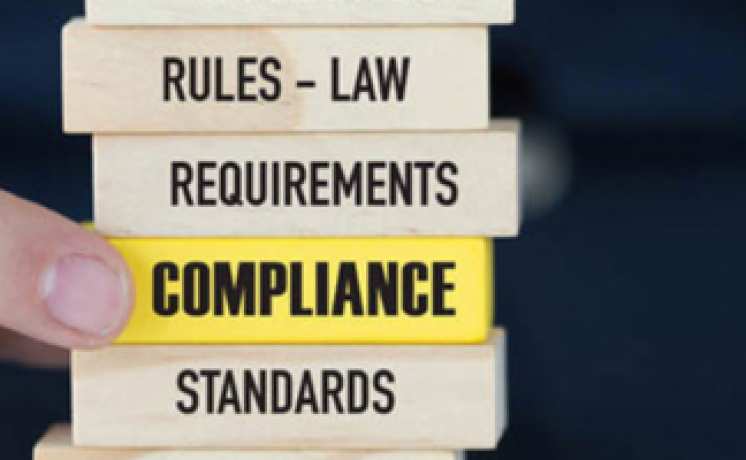Life Sciences Expertise
Data Integrity in Life Sciences

Data integrity is the extent to which data is complete, consistent, and accurate throughout its lifecycle.
Your data is the most valuable asset in your organization. How you access it, store it, move it, and back up and archive it, is all part of your data management and data integrity strategy.
Data integrity in highly regulated life sciences companies helps ensure product quality, safety, and efficacy prior to product approvals and subsequently placing them on the market. It’s also important for quality control procedures during manufacturing to ensure patient safety. Companies that fail to comply might face penalties like public warning letters, criminal charges, and product removal from the marketplace.
USDM Life Sciences knows that data integrity and data management are critical elements of your quality system. We can assess your current data integrity system, then provide a tailored improvement plan that fits with your company’s risks and priorities. This plan will address data integrity policies, training, and culture. It will also help ensure that your quality system integrates best practices for supplier quality, internal audits, and management review.
Hear Dr. Andree Bates speak on data bias & compliance in regards to AI systems
To hear more, check out our on-demand webinar: 2024 Life Science Summit
Compliant Data Management Solutions for Your Life Sciences Organization
A data governance strategy is necessary to manage company repositories, but it’s especially important for highly regulated life sciences companies that face challenging regulatory requirements. Quality and clinical teams must securely manage and control their R&D and clinical trial data, and IT teams must manage IT systems deployed across the organization.
Specifically, 21 CFR Part 11 says that if you use a computer system to maintain, create, or modify records required by the predicate rules, then you must do certain things to control those records. If you use eSignatures, you must comply with the requirements in this regulation.
Digital Signature Collection and Storage
The intent of Part 11 is to maintain accountability and traceability of your electronic records, including eSignatures. In part, it asks:
- Is system access restricted to authorized individuals?
- Are authority checks used to ensure that only authorized individuals can access the system, electronically sign a record, alter a record, and perform an operation?
- Do signed electronic records contain the name of the signer, date and time of the signature, and meaning of the signature (i.e., review, approval, responsibility, authorship, etc.)?
- Does the system provide transaction safeguards to prevent unauthorized use of passwords and/or identification codes?
- Can the system immediately and urgently detect and report attempts of unauthorized use to the system security unit and organizational management?
- Are audit trails built into the system?
USDM Life Sciences has thorough processes, SOPs, and checklists to ensure that you follow the guidelines. We can also help you build a data integrity program that fits with your company’s priorities, plus:
- Assess and detect areas of risk
- Remediate risks
- Build a governance structure
- Define a compliance strategy
- Provide training programs
Contact us to establish a data integrity program appropriate for your organization.
Audit Trails and FDA Compliance
Records or data entered into a Quality Management System (QMS) have specific requirements for tracking and traceability. Event logs are not enough to satisfy the needs of 21 CFR Part 11; consequently, an audit trail keeps records that show who accessed a computer system, when it was accessed, and what operations were performed. Altered records track who edited the records and for what reason. All created, modified, or deleted records are retained and traceable with a timestamp and offer version history.
Read USDM’s Guide to Part 11 for more information.
GxP Compliant Cloud Data Software and Training
Software solutions for regulated GxP data and records must meet 21 CFR Part 11 requirements. Many software development vendors in the life sciences space comply with Part 11 requirements. USDM has worked with vendors like DocuSign and Adobe, so you can be sure your eSignature capabilities are based on business process best practices. We also offer GxP training courses to help your teams learn about global regulations. To maximize your cloud technologies and minimize risk, get your teams signed up for organizational change management training.
Ready to discuss your data management strategy?
Related Services
Cybersecurity
USDM has experienced staff who will help you meet FDA expectations for good cybersecurity practices such as preventing unauthorized user access and maintaining data confidentiality.
Unique Device Identification (UDI)
UDI regulatory compliance solutions for the medical device industry, including EU MDR and IVDR readiness, assessments of supply chain and regulatory activities, and more.
Compliance Training
USDM has customized training programs to educate internal teams or external partners and to help you stay current with the rapidly changing regulatory landscape.
Resources that might interest you

- Joseph Cassella
- -



- Jay Crowley
- -

- Jay Crowley
- -

- David Blewitt
- -
USDM Thought Leaders



